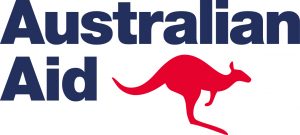In the West Bank, 3.2 million Palestinians live under Israeli occupation, with the state of Israel controlling all aspects of the economy and business environment. Around 200,000 Palestinian men work in Israel or Israeli settlements on a daily basis. Public sector workers employed by the Palestinian National Authority in Ramallah often face wage issues, receiving reduced or no wages, despite facing similar living costs to Israel. Early this year, teachers went on strike for several weeks over this issue.
Nurturing Women’s Cooperatives
It is important to develop the capacity of cooperatives to preserve Palestinian national identity, protect land rights, promote local food self-sufficiency, and address women’s unemployment.
Since 1988, Union Aid Abroad – APHEDA has formed a strategic partnership with MA’AN Development Center, an independent and secular organisation not aligned with any political group. The project builds upon previous Australian government initiatives in agriculture in the occupied Palestinian territories between 2009 and 2012. It currently focuses on supporting two newly established women’s cooperatives by providing assistance in business, technical skills, governance, marketing, and psychosocial support. Additionally, inputs and equipment are provided to aid their operations.
Building Economic Resilience
One women’s cooperative is located in the village of Kufr al Deek in Salfit district. The village, like others in the area, faces threats from expanding Israeli settlements. The land is green and mountainous, with almond and olive trees, herbs, sheep, goats, and household vegetable gardens. Established just before the COVID-19 pandemic in 2019, the cooperative, named al Zaytouna (the Olive), consists of 21 members. They operate a shop and bakery in the village, equipped with labour-saving machinery for bread and pastries, as well as solar electricity. The women also produce pickled organic vegetables and olives and package herbs and maftoul (Palestinian couscous), which they sell in local supermarkets. They have also started providing catering services for local schools and other events.
The other women’s cooperative was formed in 2020 by 16 women farmers in the village of Deir al Sudan, near Rawabi in the Ramallah district. They leased 10,000 square meters of rocky land on a hillside, which they cleared by hand and then leveled with assistance. Using a combination of traditional knowledge passed down from their grandmothers and technical training from a local expert, they employ permaculture and organic techniques to grow a variety of vegetables. They have also established a highly productive wheat field and plan to cultivate grapes, which are in high demand in Eastern Mediterranean cuisine. Their locally sold organic produce has gained popularity, particularly due to concerns about toxic pesticides used in commercial farming across the border. The project has provided the women with a portable office and storage room.
Demonstrating success
Both cooperatives have fostered a strong sense of confidence and camaraderie among the women, elevating their social and economic standing. Through their focus on organic food production and processing, these cooperatives contribute to the concept of “sumud” (steadfastness) and the preservation of land ownership.
This project serves as a trial to demonstrate the success of accelerating the growth of women’s cooperatives. Moving forward, the project will continue providing technical, business, marketing, and psychosocial support, as well as necessary capital inputs. The goal is to expand the project to include women’s cooperatives in villages throughout the West Bank.
The project is supported by the Australian Government through the Australian NGO Cooperation Program (ANCP).

